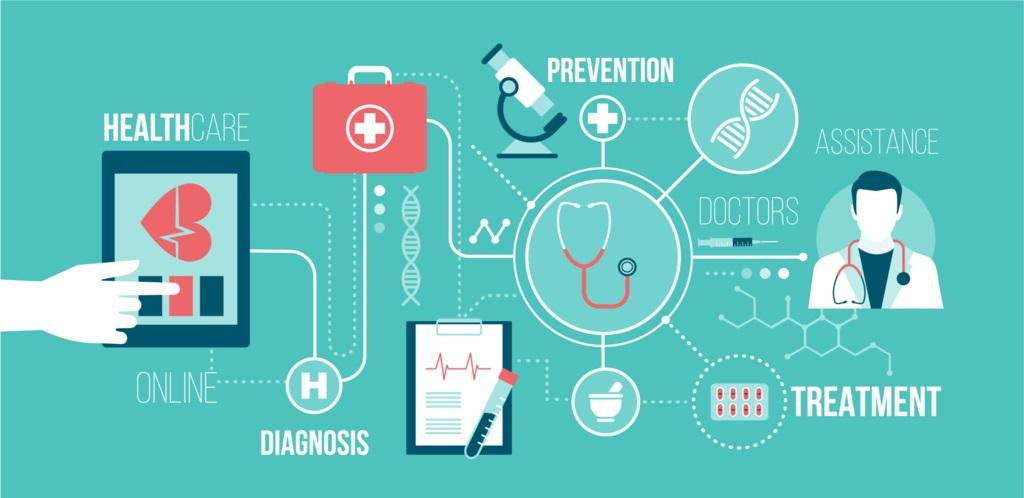In today’s healthcare landscape, medical billing is very important component of healthcare financial management. Accurate and efficient medical billing processes can help healthcare organizations to streamline their revenue cycles, reduce operational costs, and ultimately improve patient care.

Medical billing is a crucial aspect of the healthcare system that significantly impacts both healthcare providers and patients. It involves the process of submitting and following up on claims with health insurance companies to receive payment for services rendered by healthcare providers. Here are several reasons why medical billing is important in healthcare:
Financial Stability of Healthcare Providers:
Revenue Stream Diversification:
Healthcare providers can enhance financial stability by diversifying their revenue streams. This includes expanding services such as telehealth, outpatient care, and specialty services, reducing dependence on a single source of income and mitigating the impact of market fluctuations.
Efficient Cost Management:
Implementing rigorous cost control measures and operational efficiencies is crucial. This involves optimizing supply chain management, reducing unnecessary expenses, and investing in technology to streamline operations and improve patient care, ultimately lowering costs.
Payer Mix Optimization:
Balancing the mix of payer sources, such as private insurance, Medicare, Medicaid, and self-pay patients, is essential. A diverse payer mix can help healthcare providers manage financial risks associated with reimbursement rates and policy changes from any single payer.
Robust Financial Planning and Reserves:
Maintaining a strong financial plan and adequate reserves can buffer against economic downturns, unexpected expenses, and reimbursement delays. Strategic financial planning includes budgeting, forecasting, and scenario analysis to prepare for various financial contingencies.
Compliance and Legal Requirements:
Medical billing in healthcare is crucial for ensuring compliance with various legal requirements and regulations. Here are five key points illustrating its importance:
Adherence to Regulatory Standards:
Medical billing must comply with numerous federal and state regulations, such as the Health Insurance Portability and Accountability Act (HIPAA) and the Affordable Care Act (ACA). These regulations mandate the secure handling of patient information, accurate billing, and the prevention of fraud. Non-compliance can lead to severe penalties, including fines and legal action.
Prevention of Fraud and Abuse:
Accurate medical billing helps prevent fraudulent activities such as upcoding (billing for a more expensive service than was provided) and unbundling (billing separately for services that should be grouped). Compliance with legal requirements ensures that healthcare providers bill only for services rendered and receive appropriate compensation, maintaining the integrity of the healthcare system.
Ensuring Accurate Reimbursement:
Proper medical billing is essential for healthcare providers to receive accurate reimbursement from insurance companies and government programs like Medicare and Medicaid. Compliance with billing codes and documentation requirements ensures that claims are processed efficiently and that providers are paid in a timely manner, which is critical for their financial stability.
Patient Protection and Transparency:
Compliance with billing regulations ensures that patients are billed correctly and transparently for the services they receive. This helps prevent unexpected charges and ensures that patients understand their financial responsibilities. It also promotes trust between patients and healthcare providers, as transparent billing practices demonstrate a commitment to ethical standards.
Facilitation of Data Integrity and Reporting:
Accurate medical billing contributes to the integrity of health data, which is crucial for reporting and analysis. Compliance with legal requirements ensures that data collected through billing processes is reliable and can be used for various purposes, including public health reporting, research, and quality improvement initiatives. Accurate data is essential for informed decision-making and policy development in the healthcare sector.
Patient Satisfaction and Access to Care:

Certainly! Here are five points highlighting the importance of medical billing in terms of patient satisfaction and access to care:
Accurate and Transparent Billing:
Importance: Ensures patients understand their financial responsibilities, reducing confusion and frustration.
Impact: Clear, itemized bills enhance trust and satisfaction, as patients feel more confident in the services received and the costs involved.
Efficient Insurance Processing:
Importance: Facilitates quick and accurate submission of claims to insurance companies.
Impact: Faster processing and fewer errors mean patients experience fewer delays in care due to billing issues, improving overall access and satisfaction.
Reduction of Billing Errors:
Importance: Minimizes the occurrence of incorrect charges or denied claims.
Impact: Accurate billing reduces the need for patients to dispute charges or deal with denied claims, leading to a smoother, more satisfying healthcare experience.
Financial Assistance and Flexible Payment Options:
Importance: Provides patients with information about available financial assistance programs and flexible payment plans.
Impact: Helps patients manage their medical expenses without delaying or forgoing necessary care, enhancing access and overall satisfaction.
Streamlined Administrative Processes:
Importance: Improves the efficiency of healthcare providers’ administrative operations.
Impact: Streamlined billing processes free up more time for healthcare providers to focus on patient care rather than administrative tasks, thereby improving the quality of care and patient satisfaction.
Operational Efficiency:
Certainly! Operational efficiency in medical billing is crucial for the smooth functioning of healthcare organizations. Here are five points highlighting its importance:
Revenue Maximization:
Efficient medical billing processes ensure that healthcare providers receive timely and accurate payments for the services they render. By minimizing errors and streamlining billing procedures, organizations can maximize their revenue and financial stability.
Cost Reduction:
Streamlining billing operations reduces administrative costs associated with manual data entry, claim submissions, and follow-ups. Automation and standardized processes help minimize errors and decrease the need for additional staff, ultimately lowering operational expenses.
Compliance and Risk Management:
Medical billing involves complex regulations and compliance requirements, including HIPAA (Health Insurance Portability and Accountability Act) and payer-specific rules. Ensuring adherence to these regulations mitigates the risk of audits, penalties, and legal issues, safeguarding the organization’s reputation and financial standing.
Enhanced Patient Experience:
Efficient billing processes contribute to a positive patient experience by reducing billing errors, clarifying financial responsibilities, and expediting claims processing. Patients appreciate transparent billing practices and timely resolution of billing inquiries, leading to improved satisfaction and loyalty.
Data Insights and Decision-Making:
Effective medical billing systems generate valuable data insights that can inform strategic decision-making and operational improvements. Analyzing billing trends, reimbursement rates, and claim denials enables healthcare organizations to identify areas for optimization, negotiate better contracts with payers, and enhance overall financial performance.
Adapting to Changes in Healthcare:

Financial Viability:
Effective medical billing ensures that healthcare providers receive timely payments for the services they render. As healthcare systems evolve, adapting billing practices to changes in regulations, insurance policies, and patient demographics is crucial for maintaining the financial stability of healthcare facilities.
Compliance and Regulation:
Healthcare regulations are constantly evolving to accommodate changes in technology, patient needs, and industry standards. Adapting medical billing processes to comply with these regulations is essential for avoiding penalties, maintaining legal compliance, and ensuring patient data security and privacy.
Patient Experience:
Smooth and accurate medical billing processes contribute to a positive patient experience. Patients appreciate transparency in billing, clear explanations of charges, and efficient resolution of billing inquiries or disputes. Adapting billing practices to prioritize patient satisfaction can enhance trust and loyalty to healthcare providers.
Data Analytics and Decision Making:
In the era of big data, medical billing data provides valuable insights into healthcare trends, resource allocation, and revenue management. Adapting billing systems to collect and analyze data effectively enables healthcare administrators to make informed decisions, optimize workflows, and identify areas for improvement in service delivery and financial performance.
Interoperability and Integration:
With the increasing adoption of electronic health records (EHRs) and healthcare information systems, interoperability between billing systems and other healthcare IT infrastructure is essential. Adapting medical billing processes to integrate seamlessly with EHRs, patient portals, and payment systems streamlines administrative tasks, reduces errors, and improves overall efficiency in healthcare delivery.
Conclusion:
Medical billing is an essential function within the healthcare industry that supports the financial stability of healthcare providers, ensures compliance with regulations, enhances patient satisfaction, and improves operational efficiency. By maintaining accurate and efficient billing processes, healthcare providers can focus more on delivering quality care to their patients while ensuring they receive appropriate compensation for their services.